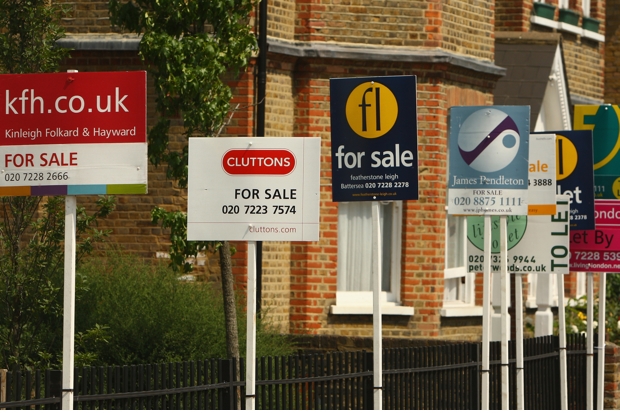House prices moved up a gear in February, according to Nationwide, with property values increasing by 4.5 per cent in a year.
The
BBC reports on the building society’s latest house price index which also reveals that property prices were up by 0.6 per cent compared with the previous month, bringing the cost of the average home to £205,846. Both the monthly and annual rise are greater than in January, but the Nationwide does not expect house prices to rocket. It is forecasting a 2 per cent rise in UK house prices over the course of 2017.
Jonathan Hopper, managing director of Garrington Property Finders, said: ‘It’s fast becoming less a battle of wills than a battle of nerves – the uneasy standoff between cautious buyers and sellers who know they have less competition than usual. The acute lack of supply is steadily nudging up average prices, but pragmatic vendors have long since grasped that this is anything but a seller’s market.’
BHS
The Times reports on the news that Sir Philip Green has been forced to channel £363 million into the BHS pension scheme.
This is the biggest payout yet secured by the Pensions Regulator and comes as the retail billionaire seeks to salvage his reputation and hang on to his knighthood.
The Times said: ‘The deal will ensure that 19,000 BHS pensioners get better payouts than under the government scheme for failed companies. Former employees will not receive their full entitlements, however, and Labour last night derided the settlement as “peanuts” for Sir Philip and far short of the £571 million needed to fully plug the scheme.’
Motor insurance
The row over changes to compensation rates for victims of car accidents continues. Following a meeting with insurance chief executives yesterday, Chancellor Philip Hammond has said the government would ‘urgently’ consult on the new government formula for calculating personal injury payments.
Insurers have warned that car insurance premiums could soar after the changes are implemented. But Hammond didn’t commit to making changes to the formula before it comes into force next month.
Spending
Most popular
The special needs racket is out of control
Four million people in the UK were forced to cut back on central heating in the last year just to get by, according to the latest Financial Wellness Index, conducted Bristol University and commissioned by financial services innovator Momentum UK.
The study also found six million people (12 per cent of the UK’s adult population) had to cut back on food spend in the last year. With low wage growth and rising inflation now dragging people’s disposable income down even further, low earners will be forced to make even more cutbacks in the coming months to make ends meet.
Consumers are also having to go without lifestyle expenses due to a lack of money – more than eight million people (16 per cent of UK adults) couldn’t afford a holiday in the last 12 months, and more than seven million cut back on socialising. And some are not only cutting back on essentials and luxuries, but are actually having to raise more money to get by through borrowing and selling possessions.
Universal credit
The Guardian reports that ‘families with children are the biggest losers under universal credit, with some families left thousands of pounds worse off’.
According to a new study by the Child Poverty Action Group and the IPPR think tank, a series of government cuts and changes mean that lone parent families will be on average £2,380 a year worse off, while families with two children lose £1,100 on average and those with three youngsters lose £2,540.
Savings
Swingeing rate cuts by National Savings & Investments are forcing building societies to cut returns to new lows, according to the
Daily Mail.
A number of building societies, including Nationwide, Vernon, Principality, Beverley, Manchester, Family and National Counties have lined up cuts for March. Others could follow suit.






Comments